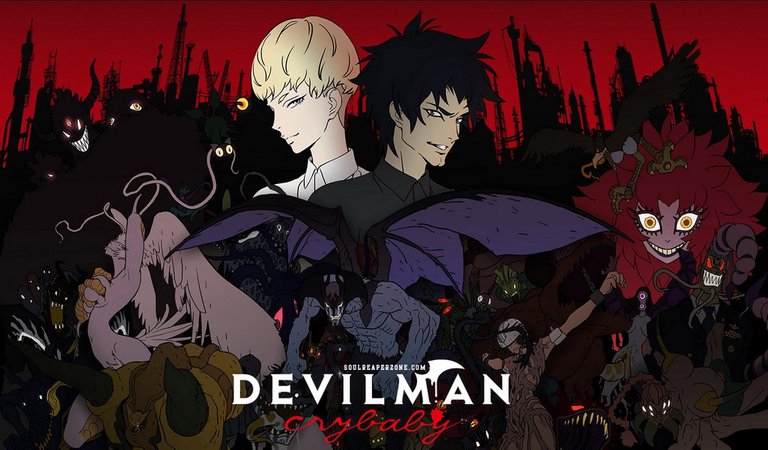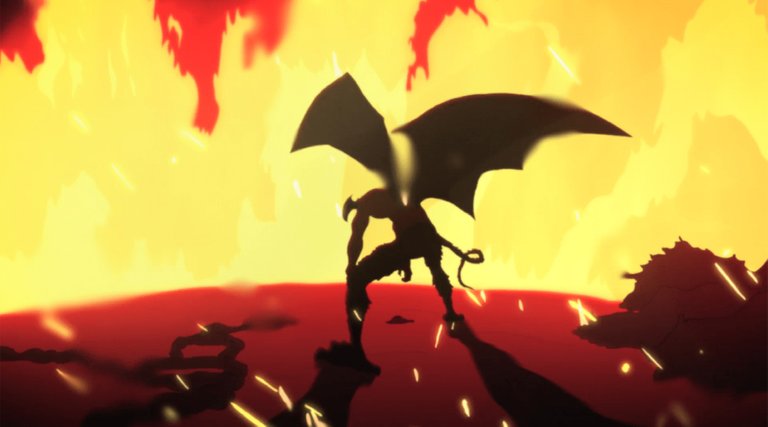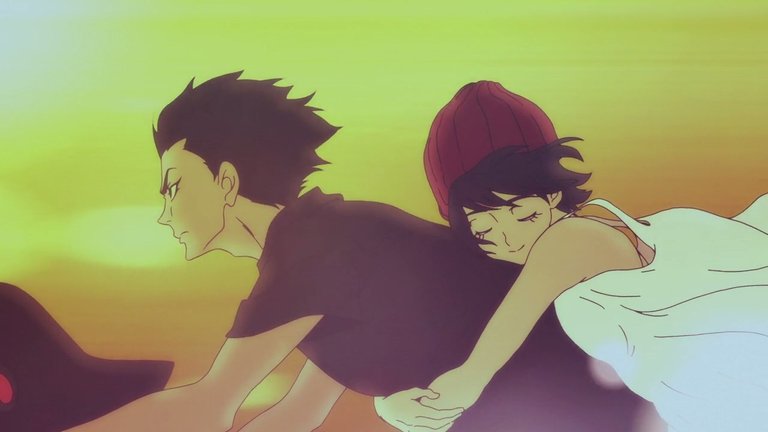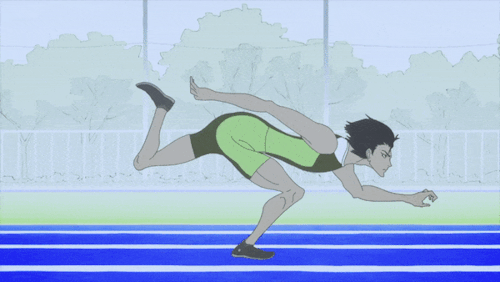When I consider whether a show is worth watching there are three main factors I take into consideration: quality, entertainment factor, and the overall message.
I wrote about the reasons why we should be excited for Devilman last week (https://steemit.com/television/@medicinemerchant/why-you-should-be-excited-for-devilman-crybaby) and so it's only natural that I should follow through on that with a more in-depth post.
Devilman: Crybaby is the first show to be completely released this year, due primarily to Netflix's all-at-once method. It aired in the Winter season of 2018 and has 10 episodes. It's a complete adaptation (read: adaptation, not 1:1) of Go Nagai's 1972 Devilman manga. The premise is about a man who becomes possessed by a devil while keeping control of himself in order to fight the growing demon menace that is threatening mankind. Devilman first became popular because it was the first manga at the time to be so violent and graphic, with lots of sexual content. The anime adaptation changes a lot from the manga to the point that only the core plot points are similar. The director, Masaaki Yuasa, has been known for his unique directing style and made great use of it once again in this show.

Quality
It would not be possible to talk about Crybaby without mentioning how it changed so much from the manga. There is a lot of modernisation, like the use of cameras, smartphones, social media, etc. This was similar to how Parasyte, set in the 80s, was transformed into a mid 10s setting. The best part of the modernisation is that the bland tough guys from the manga become a rap gang who are quite impressive at their art. The most noticeable changes, other than the character designs, are that the show has a lot of track racing. This acted as a great way to characterise Akira, Miki and Miko, all of whom received moderate to no characterisation in the original manga. We are shown a lot more of Akira before he becomes Devilman, which was a significant improvement because the manga began with an infodump between Ryo and Akira. All of the relevant characters in Crybaby have enough personality that it's clear what sort of people they are. The dynamic between Ryo and Akira is well done due to the better characterisation.
The plot takes mostly the same turns as the original, but with the added track racing there is an extra dynamic and more depth. Most scenes regarding Miki are new, including the photoshoot related scenes, and they act to prevent the plot from being too straightforward and blunt. Considering how bland Miki was in the source material, all of these changes are very welcome. The manga liked to throw everything at you at once, but the anime takes a slower approach. A complaint people had about the adaptation was that it minimised the roles of some of the demon enemies, however, one of the characters they complain about was hardly relevant in the manga, and the other had changed scenes to increase the emotional impact. I have no complaints about any of the changes because they are logical and make the story and show better as a result. This is not to say the plot has no issues, because it has some significant ones. Crybaby seems to move at a very fast pace towards the end and doesn't take the necessary time to fully justify some of the events that happened like lightning. Compared to the manga, however, this is still an improvement because it was also very rushed at the end and didn't take any time to justify what happened.
Since Crybaby is a Masaaki Yuasa work, it would be an insult to not praise his directing. The art style might seem weird and the running animation is positively goofy, yet this is all part of Yuasa's charm. Yuasa is clear with what he is conveying because he is a visual director. He gives information off with the slightly drugged up visuals rather than via infodumps ala the manga. His directorial changes led to a far greater payoff for certain scenes, and one particular scene later on in the show that he made was one of the best moments of the show. Yuasa does the original justice and improves upon it significantly. The theme exploration is decently done and this adaptation muddies the waters a bit more than the "War is evil", "Nukes will destroy the world", "Humans were evil all along". There's nuance in what Crybaby is presenting with the core conflict. There are also a lot of Christian themes, most of which are well done and none of which stoop to the level of Evangelion, which used religious imagery and symbolism because it looked cool instead of being substantial. The themes are substantial in this one.

Entertainment Factor
The main reason you should watch Devilman: Crybaby is for the entertainment. There's a lot of violence, a lot of R-rated sexual content, a great soundtrack, and fluid animation. The original Devilman became popular because it was the first manga to push the boundaries so much and become edgy. Crybaby acknowledges this and delivers even more sex and gore. Great popcorn material. Not recommended as a romantic show to watch with your wife because she'll probably hate it or start crying at all the gore and horror elements, but if you have some mates you want to spend a 4 hour night with, grab a six pack and enjoy the night.
Some people might take issues with Yuasa's art style or dopey animation, but I see that as part of the fun and a great reason to watch Devilman. I first became interested in this show because I saw Yuasa's name attached, and a lot of people became interested because it was part of the Devilman franchise. For whatever reason you're interested, this is show is a great deal of fun, despite some incredibly edgy scenes and slightly rushed story.

Overall Message
With the Christian themes and the "War is hell" type messages, Devilman manages to have a strong moral position, despite showing non-stop degeneracy, violence and hatred. This does not feel forced or in too deep contrast to the content. Devilman's manga was blatant with its themes and they came seemingly out of nowhere. Crybaby weaves them in to the plot and demonstrates the message, rather than having a textbox and assuming that would matter.
After examining the show retrospectively, the core themes are that "War is hell, but it's still worth fighting to protect what's important to you", and "Defiance of God's will will lead you down the path to hell". It is no coincidence that all the degeneracy and evil is coming primarily from the demons, though the humans also display similar behaviours. The show condemns all those who engage in degenerate behaviour and condemns evil without a doubt. On the other side, the show praises those that do whatever they can, at whatever odds, to try and make the world a better place. It seems appropriate to mention Norse Mythology and the Ragnarok: the heroes fought their enemies knowing full well what the expected outcome would be, and they fought valiantly to the end. There's a similar concept in Devilman to fight the good fight no matter what, which has links to the Christian themes of doing what is right, regardless of circumstance.

Should you really watch Devilman: Crybaby?
Yes. Yes you should.
@originalworks
The @OriginalWorks bot has determined this post by @medicinemerchant to be original material and upvoted it!
To call @OriginalWorks, simply reply to any post with @originalworks or !originalworks in your message!
@eaudebla I know you were planning on watching this. What were your thoughts?
I'm not a fan of the manga, evidently, but I found that there were enough improvements and changes that the story was adapted into something more impressive than the original, yet more grounded.
@thatanimesnob claims that people often like what they saw first so most people who read the manga first will probably like that.
I was lurking on 4chan/a/ and I saw some anons claiming that the ending of the anime lacked the emotional impact of the original manga. Is there any truth to that? Or is it just the oldfag elitist attitude?
There is no truth to it. The show increases the emotional impact of the end by not having cardboard cutout characters.
I gave it a good go. like 5 or 6 episodes, but I seriously disliked it. It seemed waaay too haphazard, rushed, and plot holey. Holedy? Hmm.
I give this anime a chance, it was edgy as fuck with nothing to keep me engage so I drop it on episode 4.
The weird art style make the gore and sex feel soo cartoony that make me not care one bit for it, this Miko chick does nothing and she is also irrelevant to anybody in the main cast which make me don't care one bit for her despite the show wanting me to care and she feel more like filler because you could remove her and nothing would change in those ep... oh and how convenient that Akira's parent get attacked like that... and the main cast, is barely interesting...
If you think it's edgy you shouldn't be complaining about the art style. Imagine how edgy it would be with a more realistic style. Miko becomes relevant in the second half, which is why she has all the setup in the first. Akira's parents were never characters and did nothing. It's much better that they were used in some way than if they were forgotten about completely. They're solely a plot device to further Akira's character arc.
maybe I would be sold with a more realistic art, even if only for more shock factor sake...
So you want it to be edgier, despite thinking it's too edgy?
well, that is the selling point of it, right?
it have ton of gore and sex, but I like I said I don't give a crap for any of it because it was like watching Tom & Jerry or something
Pushing the boundaries and being edgy was one selling point, but the other and more important one was what happens towards the end including the ending.
as the beginning does not engage me in any way, why should I care for the ending?
watching a serie just for the finale is not a very compelling reason